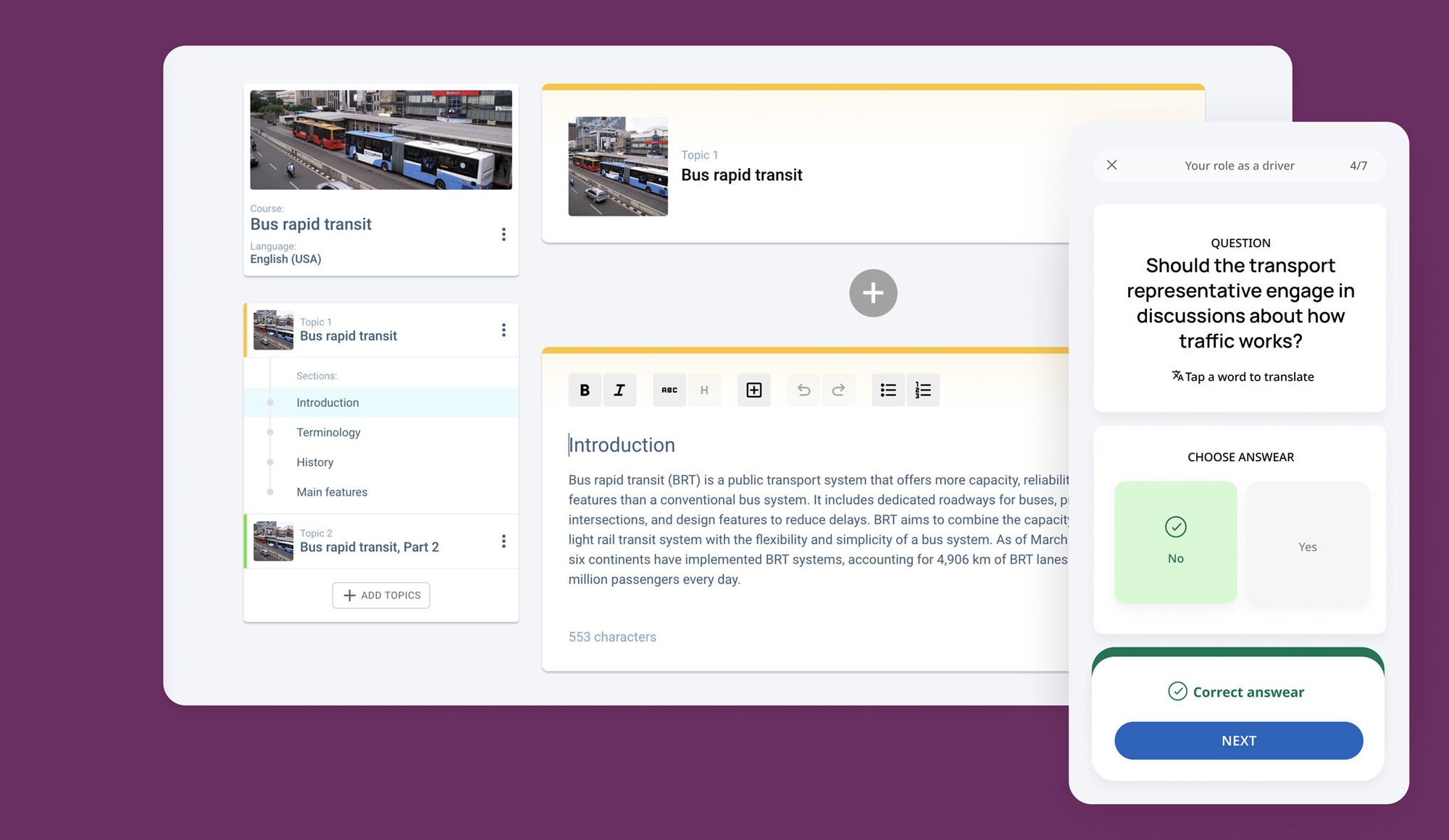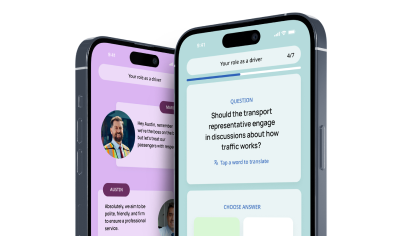Empower hotel managers through these impactful training strategies
By integrating these practical training strategies, hoteliers can create a robust learning ecosystem that enhances the capabilities of their managers and drives overall hotel performance, guest satisfaction, and employee morale. Now, let's explore each strategy in detail, highlighting how it contributes to developing effective, agile, and visionary hotel leaders.
1. Initiate with comprehensive onboarding
Starting a manager's journey with a well-structured onboarding process is crucial for integrating them into the hotel's operational fabric and culture. This initial phase is about more than just relaying information - it's an opportunity to truly immerse new managers in what makes your hotel unique. Leveraging a novel eLearning platform like Lingio enables the creation of customised, interactive learning experiences that resonate with the hotel's ethos and operational standards.
Lingio's ability to quickly transform traditional training materials into dynamic, mobile-friendly courses can revolutionise how new managers engage with their initial learning path. This approach ensures that managers are not only well-informed but also feel a part of the hotel's community from day one.
2. Embrace hands-on learning via shadowing
Integrating a shadowing program can be incredibly valuable in enhancing the effectiveness of hotel management training. This method involves new or existing managers following experienced staff members across different departments, observing their day-to-day activities, decision-making processes, and how they interact with both guests and team members.
By observing the practical application of policies, managers learn how decisions are made on the ground, how problems are solved, and how guest satisfaction is achieved in real-time. This hands-on learning approach encourages managers to think critically about applying these insights to their leadership style and strategy, enhancing their ability to lead effectively. Moreover, shadowing promotes inter-departmental collaboration and breaks down silos within the hotel.
3. Leverage interactive learning with handbooks and visuals
Incorporating comprehensive handbooks and visual materials into hotel management online training material reinforces operational knowledge and ensures adherence to the hotel's standards and procedures. These resources serve as a constant reference for managers, aiding in the retention of complex information through visual cues and structured guidelines.
Through Lingio, traditional handbooks can be digitised and reimagined with interactive quizzes, engaging scenarios, and gamification elements that make learning more effective and enjoyable. This method taps into the potential of visual learning, ensuring managers understand and adhere to policies while being fully prepared to implement them in their daily operations.
4. Foster continuous growth with coaching and collaboration

Implementing strategies for ongoing coaching and the sharing of best practices among teams not only reinforces the learned concepts but also keeps the team updated with the latest trends and operational strategies in the hospitality industry.
Lingio offers a dynamic platform to facilitate this continuous growth process. With its coaching portal, leadership can set up a cross-team hotel management course that is easily accessible to all staff members, promoting a collaborative learning environment. This platform allows for real-time tracking of course completion and engagement, making it easier for managers to monitor progress and identify areas for further development.
The accessibility of Lingio's hospitality staff training courses ensures that learning and development can happen on the go. This caters to the needs of a mobile-first workforce and enables every team member, regardless of their schedule or location, to benefit from the shared knowledge and expertise.








